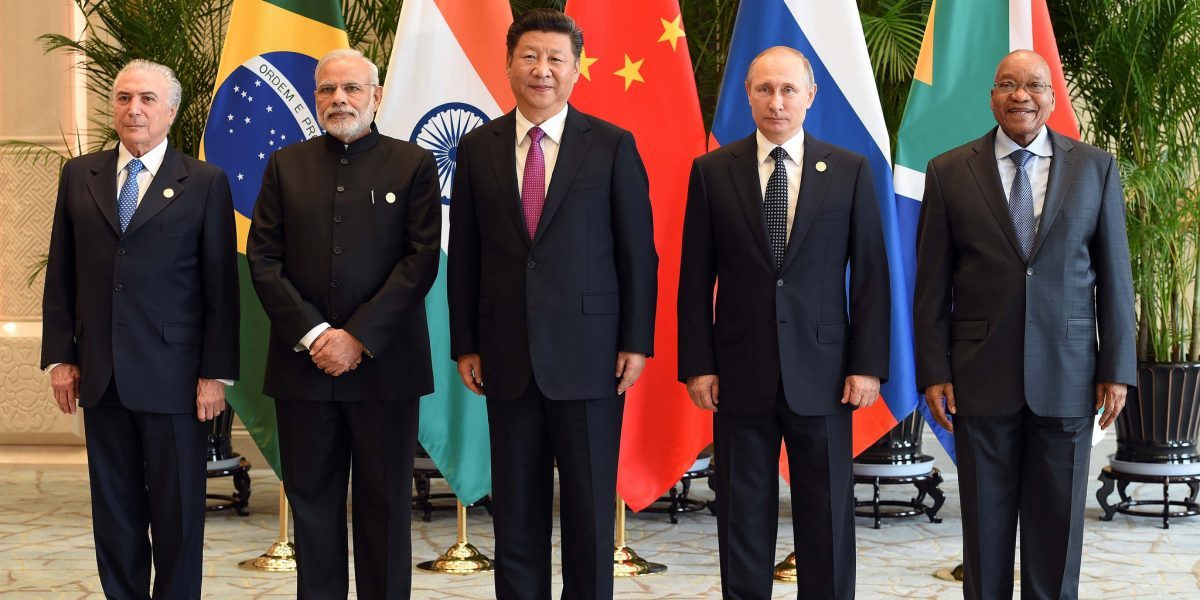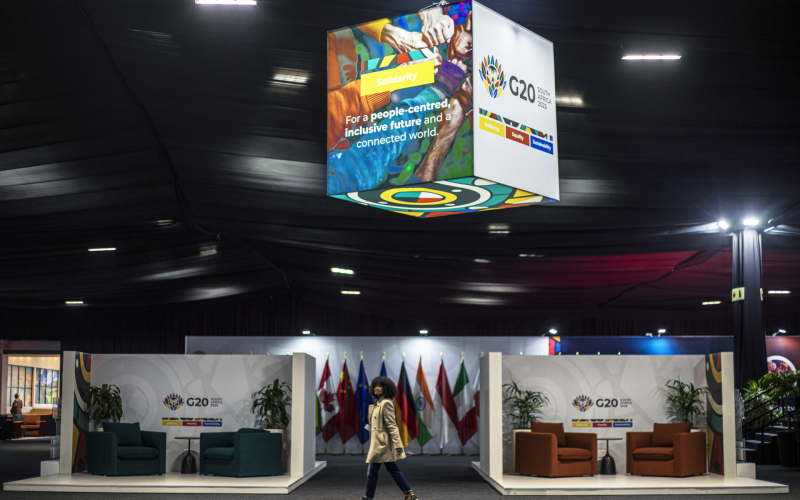What should the government’s priorities be? This is a subject of earnest discussion in government, business and civil society circles.
The Cabinet was reported to have approved a new draft Brics strategy last month, which identifies objectives and opportunities for South Africa through its membership of the group. But the details of this strategy have not been discussed widely and the dialogues by South African stakeholders on Brics issues remain parallel rather than inclusive.
What is widely agreed now is that South Africa ‘deserves’ to be in the grouping. Economically, South Africa is not a Bric, according to the criteria envisioned by Jim O’Neill, who coined the concept in 2003: fast-growing economies with bulging middle classes and promising markets that were likely to overtake the developed nations of the G7 as the best-performing economies by 2040. South Africa does not fit this mould – let us accept that and move on.
But O’Neill’s famous marketing brand does not apply to the world of economic diplomacy with its strong political undertones. Politically, South Africa punches far above its weight in many global governance forums, from the World Trade Organisation to the United Nations Framework Convention on Climate Change and the G20 group of nations. We take this to be the core raison d’être for Brics and therefore South Africa’s Brics identity crisis needs to be put to rest.
For the Brics, or any other such grouping, forging common positions in multilateral forums is not easy. The Brics individually have divergent economic and political interests. Those differences are probably sharpest in the political terrain, especially regarding the relationship of each state to its citizens. The democracy question sharply distinguishes the Brics from its main counterpoise in the global environment, the countries that constitute the G7. This Western formation does share democratic credentials and broadly liberal philosophies, which lends the group a degree of coherence not available to the Brics for the foreseeable future.
However, democracy is not at the core of economic diplomacy; the cold calculus of economic interest is. And on this front the G7 economies are more at odds than is commonly assumed. In fact, the G7 was formed to manage economic conflicts in the group by managing the institutions that govern the global economy.
Common agenda
Similarly, different economic interests among the Brics will constrain, perhaps sharply, the possibilities of co-ordinated action among them. Therefore, it will take time to build a minimum common agenda, much as it took the G7 decades to achieve relative coherence. It can be expected that significant time and resources will be spent on the internal agenda of the Brics in the short to medium term.
This getting-to-know-you phase, or courtship, is important and will pay its own dividends with a possibly greater understanding among these important countries on a wide range of political, economic and social issues.
To build this agenda, it is critical for the Brics countries to engage in mutual learning. Three components seem particularly relevant.
First, they must engage substantively on their varying approaches to economic development, specifically the balance accorded to markets versus the state. Lumping them all together into a state capitalist box is not very helpful, because realities and approaches vary substantially among Brics members. Each country can learn lessons, particularly about the challenges of implementing market reforms and balancing economic development priorities. At the same time they can figure out what they can co-operate on internationally and what they are best placed to pursue unilaterally or at a bilateral level.
Second, they need to focus strongly on the facilitation of trade. Their respective business communities share mutual interests and the forum should use its leverage to cut trade and investment deals.
But, generally, these countries are not renowned for operating business-friendly environments. They also do not have long-standing traditional infrastructural links and private sector relationships to fall back on.
The Brics discussion should focus on the nitty-gritty of trade and investment barriers that inhibit business ties among them while raising awareness in their business communities of the opportunities.
Hub-and-spoke pattern
This is particularly the case if the links among the Brics are to move beyond simply a hub-and-spoke pattern with China at the centre and limited activity among the other members.
However, this trade agenda should not extend to negotiating a formal, tariff-reducing trade agreement. That would be a major distraction from focusing on the barriers that matter and are relatively easy to deal with, such as visas or customs procedures.
Third, they should continue their discussions about financial co-operation, such as using each other’s currencies in trade and linking their stock exchanges where it makes sense to do so. This is connected strongly to the facilitation of trade and investment. Some progress has already been made, but the test now is to see the implementation of agreements that have been signed.
Because they are also discussing the possibility of setting up a Brics development bank, they should ensure that it is being done for the right reasons and not just to poke a finger in the World Bank’s eye.
In other words, there must be a clear case for a development bank that complements rather than competes with the existing development financial institutions in the members’ regions and the resources available to the private sector in each country. Creative thinking will be required to ensure that the Brics development bank does not simply replicate existing financing procedures and therefore add little real value for other developing countries.
The Brics external agenda should remain firmly focused on global economic governance. South African policymakers, however, need to maintain a clear view of which forums are best suited for which purpose.
Guidepost
Throwing everything into Brics because it has the political potential to take on the G7 may not be the wisest strategy. On some occasions it may make sense to ally with certain G7 countries if that will advance the national interest. In other words, pragmatism, not ideology, should be the guidepost.
Brics is a collective of huge, individual countries. South African policymakers should nurture bilateral relations with each member, which should constitute the dominant axis for pursuing our interests.
Furthermore, South Africa should continue to develop its relations with the rest of the African continent. Although we are the only country in forums such as the G20 that is expected to consult our neighbours, this legitimacy is actually a source of strength. In this sense we are a political ‘gateway’ to the continent, more so than an economic gateway. Of course, we cannot always pursue ‘African agendas’ because our own interests may differ, but genuinely consultative efforts will earn us political capital that would otherwise not be available.
South Africa faces some serious tactical choices regarding its participation in Brics and in its interaction with its other partners.
To appreciate all the implications fully, the government must continue to use the knowledge available to it in the business community, think-tanks and civil society. Although it may be a well-used cliché, a Team SA approach will be the only way for us to maximise the potential of the Brics.








